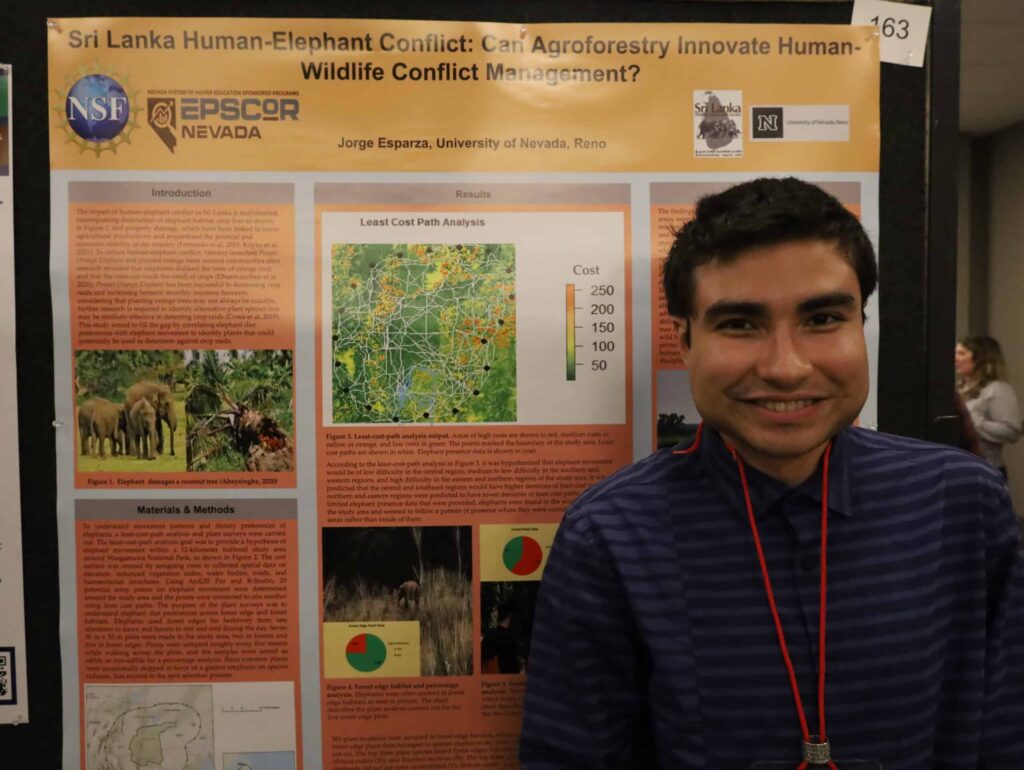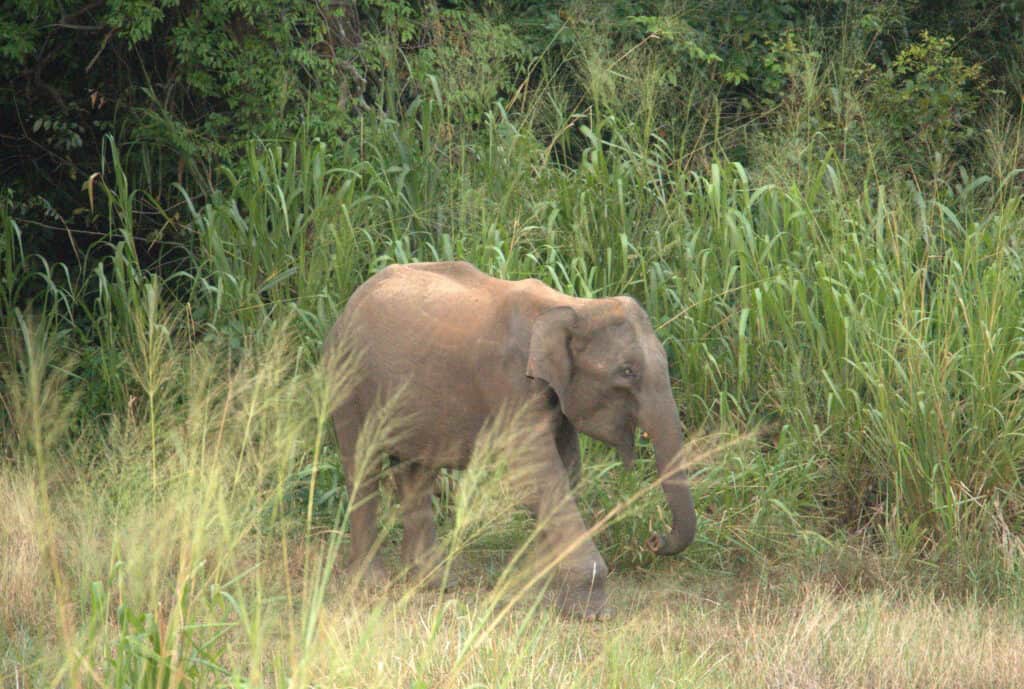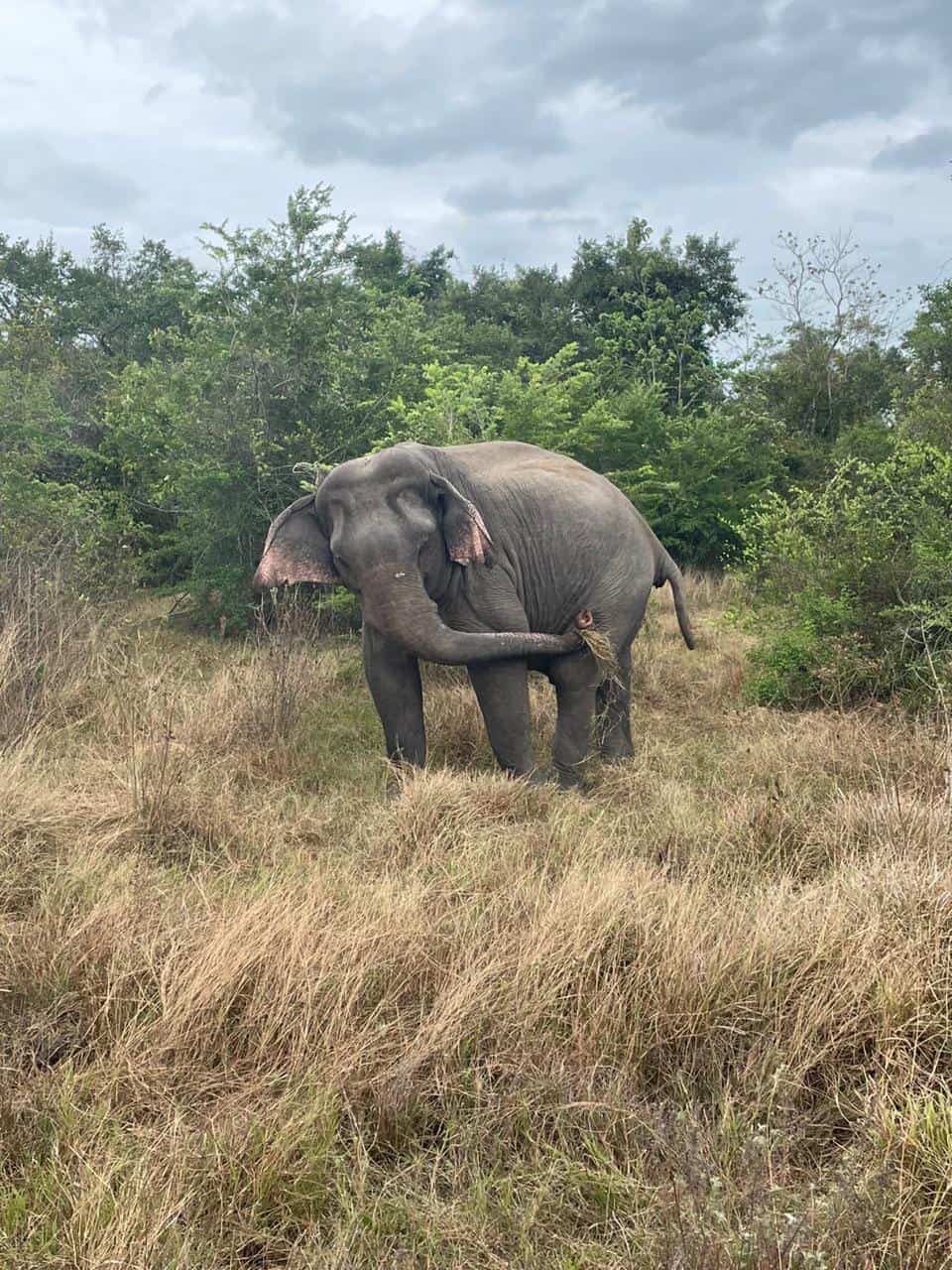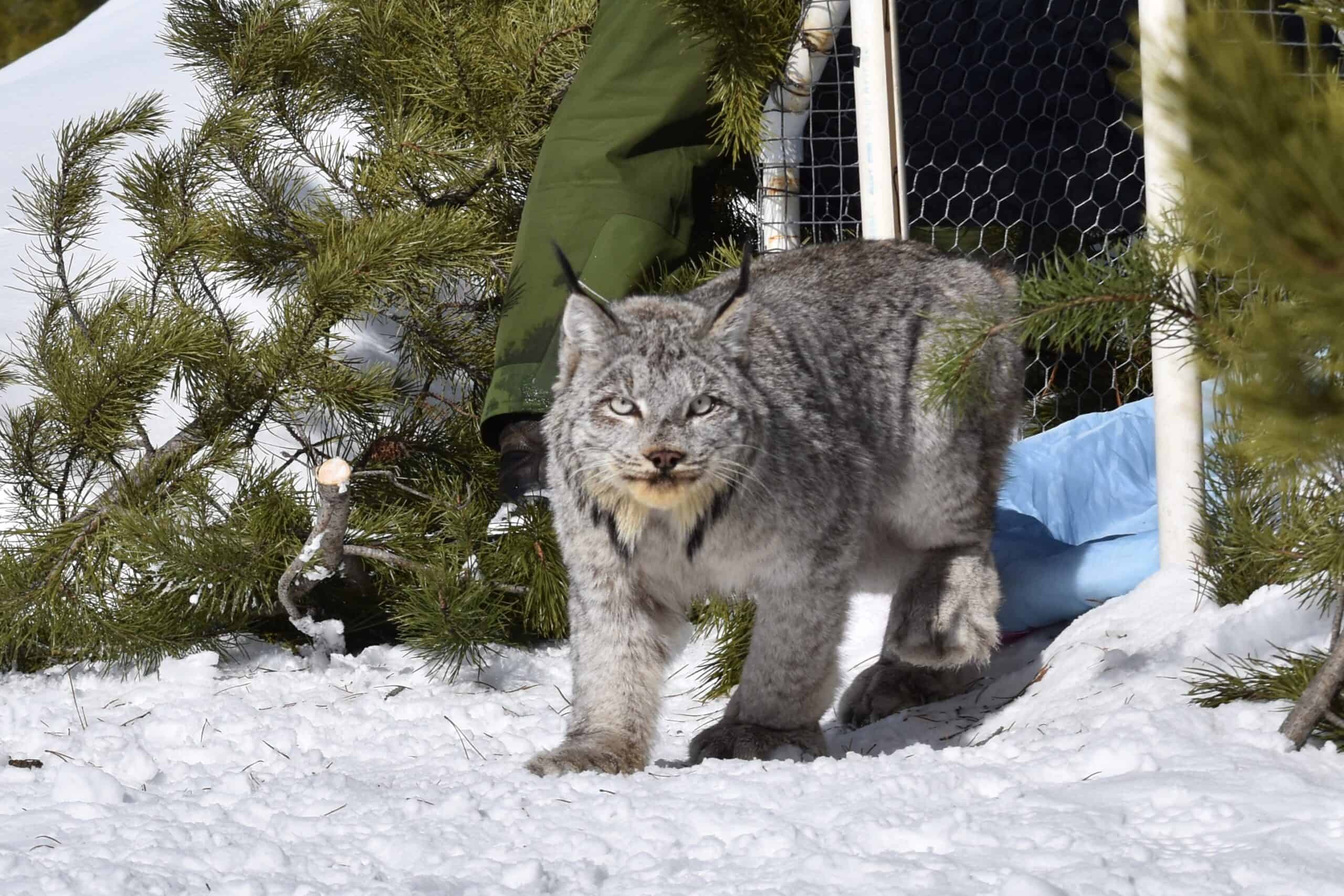Share this article
Wildlife Featured in this article
- Asian elephant
TWS 2023: Plants repel Asian elephants from crops
Researcher examine alternatives to keeping elephants from crop raiding
Sri Lankan farmers seeking to keep elephants from raiding their crops are focusing on a unique trait in the animals: their dislike for orange trees.
The practice works so well that The Sri Lanka Wildlife Conservation Society conducted the so-called Project Orange Elephant, that’s goal is to deter elephants crop raids by planting the fruit around farming communities.
But these trees aren’t always easy to acquire or grow based on labor required, maintenance of the plants, space and other factors. As a result, Jorge Esparza, an undergraduate student in wildlife ecology and conservation at the University of Nevada, Reno, is seeking out other plants found in Sri Lanka that may help repel the animals.
“There are definitely plants that the elephants don’t like to eat that could serve as alternatives to the Project Orange Elephant,” Esparza said.

Conflict between humans and Asian elephants (Elephas maximus) is an issue in Sri Lanka, which has one of the densest populations of these large mammals in the world. Killing elephants is banned in the South Asian country, but it still occurs as farmers perceive the animals as threats to their crops and livelihood—elephants can destroy entire crops in a single night.
Previous research and practice have revealed that planting orange trees around crops or farming communities keeps elephants away. They don’t like the taste of oranges—the Bibile Sweet (Citrus sinensis) variety is the one often used for this purpose—and the smell of the fruit can mask the aroma of the food they do like, such as rice, bananas, jackfruit and other popular crops in the area, Esparza said. Plus, the fruit can provide an additional source of revenue to farmers.

Alternate repellent
In ongoing research presented on a poster at The Wildlife Society’s 2023 Annual Conference in Louisville, Esparza showed how he is searching for other plants that could substitute orange trees when the latter aren’t suitable.
Esparza conducted a least cost path analysis around Wasgamuwa National Park. This essentially meant predicting where elephants were most likely to move. He compared these areas to the locations of confirmed elephant sightings to predict areas with a higher probability of conflict.

The students and researchers created 50 by 50-meter plots, some in forests and others in more open areas. Esparza and his colleagues also interviewed locals to learn more about the impacts of human-elephant conflict on farmers. This included finding out more about which plants elephants didn’t like, such as coffee and sesame.Esparza surveyed the plants in these plots, paying attention to the presence of any of the plants they didn’t like.
Comparing elephant movements to places they avoided revealed more plants the animals may dislike—species like African mahogany and Dimorphocalyx glabellus, a small tree native to the country.
Esparza said that this knowledge can improve the options farmers have for repelling elephants from farmland. Learning more about these ecological relationships may offer ways to decrease human-elephant conflict in a country where it is a pressing issue.
Header Image: An elephant grazing in Wasgamuwa National Park in Sri Lanka. Credit: Layla Juniel








